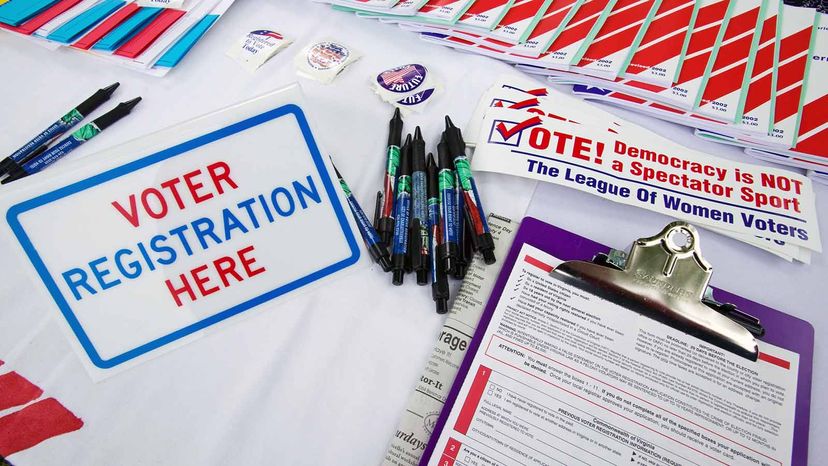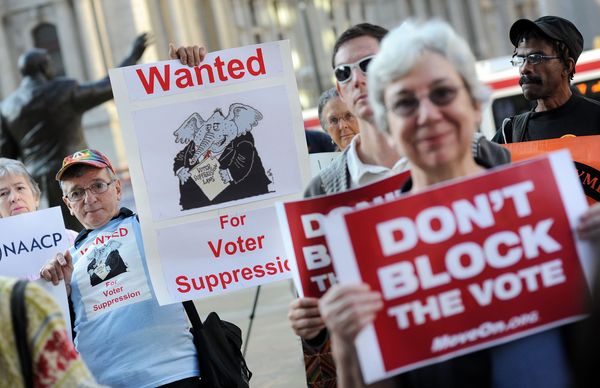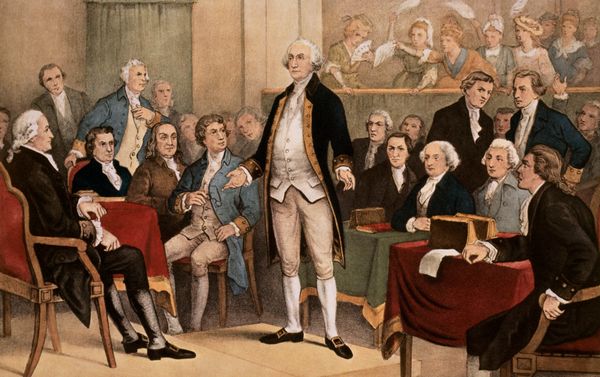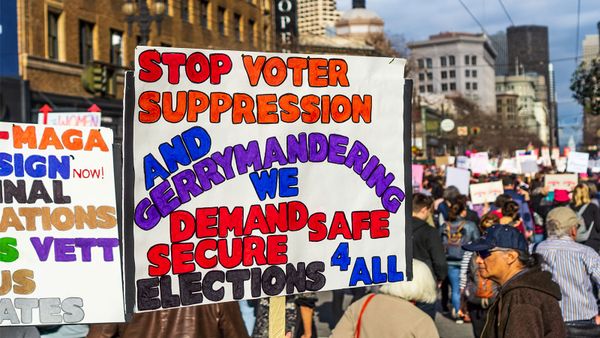
Sept. 20 is National Voter Registration Day. Finally, a chance to write about something noncontroversial about elections.
[Cue record scratch sound]. Never mind.
Advertisement
It's true that voter registration work has long been held up as nonpartisan civic good. But that's an oversimplified view.
Over the years, many court battles have been fought over state laws that voting advocates say unnecessarily restrict their registration work. And the new slew of voting laws passed by states is sparking new litigation. Nonpartisan groups like the League of Women Voters say some include provisions making it impossible for them to do in-person voter registration work in some states without risking criminal penalties.
"Our work is getting a little tougher to do what we've done for more than 100 years," said Celina Stewart, chief counsel and senior director of advocacy and litigation for the League of Women Voters. She said the League's Vote 411 voting-assistance website is still available in states where registering voters in person has become more fraught.
Davis Hammet, president of Loud Light, a Kansas nonprofit with a mission of increasing youth civic participation, has joined with the League in a lawsuit to overturn provisions of a 2021 Kansas law. Hammet said the law has brought the group's voter registration work to a complete halt. "Leading up to the 2020 election, we had registered almost 10,000 people to vote, predominantly young people," he said. "And then you get to now, and in the last year we registered, like, none, right? It's wild."
The backers of the laws say it isn't their intention to derail voter registration drives and that the laws are intended to prevent fraud and protect voters. Nonetheless, at least some experts say that like everything else to do with elections right now, partisan impulses may be at play.
"The common wisdom these days is that higher registration helps Democrats and hurts Republicans, even though I think that common wisdom could well be wrong," Rick Hasen, a UCLA law professor and expert in election law, said in an email. "But that understanding has animated some recent legal changes that make it harder to register voters in some places (often with the false claim that such laws are necessary to prevent voter fraud)."
Advertisement


